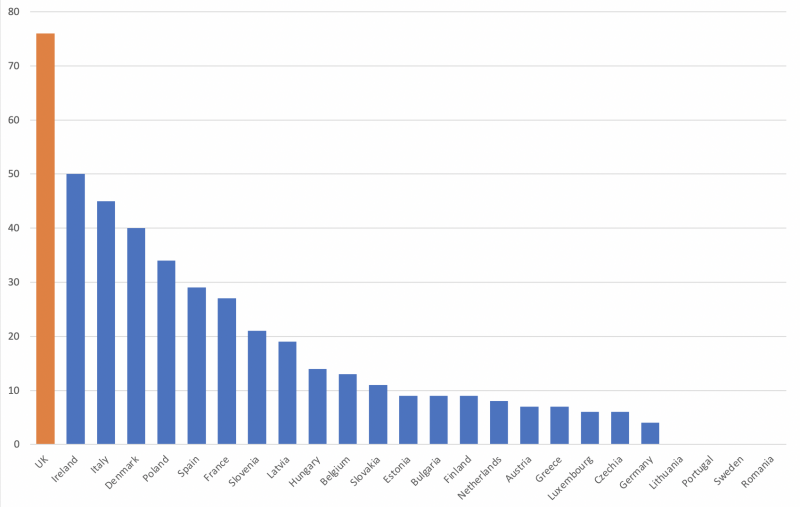 Social support services such as adult day care centres enable people living with dementia to stay at home for longer. Clarissa Giebel discusses how COVID-19 has affected access to such services.
Social support services such as adult day care centres enable people living with dementia to stay at home for longer. Clarissa Giebel discusses how COVID-19 has affected access to such services.
It is believed that close to a million people live with dementia in the UK. However striking such a numbers is, and while it highlights the importance that ought to be given to policy issues concerning dementia, it does not take into account the individual experiences of living with the condition or caring for someone who does.
Getting a diagnosis is itself difficult for some people, and there is evidence that those from minority ethnic backgrounds, or those with young-onset dementia take longer in getting diagnosed. What happens afterwards is also problematic, with many complaining about the lack of support that follows a diagnosis. Some may receive access to a post-diagnostic support group for a few weeks, others may receive a great deal of information, but many are left with little support beyond that. Accessing anti-dementia medication can equally depend on where you live and your socio-economic background, thus creating clear inequalities.
Crucially, beyond the diagnosis stage, the condition affects people’s everyday lives – from the ability to make a cup of tea to the ability to recognise family members. If people with dementia are to live well and independently in the community for as long as possible, they must be able to access social support services. These include day care centres, respite care, peer support groups, befrienders, social activities, as well as paid home care. When thinking about these types of services, provided by a range of voluntary and private organisations and UK councils, one thing emerges: they all involve social contact.
So have social distancing and stay-at-home rules impacted on these vital services? Our recent study into the impacts of COVID-19 has thrown up a particular focus on inequalities in accessing care. We interviewed 50 people living with dementia and unpaid carers remotely in April 2020, in order to understand their experiences before and during the pandemic. High costs, lack of information about suitable services, and a postcode lottery were all stated as barriers to accessing dementia care both pre-pandemic and since. One of the main facilitators of accessing dementia care was having a proactive carer – someone who is actively looking for information and support and services. The pandemic therefore has both exacerbated existing inequalities in getting the right care and created new ones.
As a result of face-to-face services ceasing, remote services started to appear very slowly. For example, support groups adapted to the digital format with many groups meeting via Zoom or Teams. Some care is also provided over the phone, if a carer requires someone to talk to about dementia issues for example. But what about those older adults living with dementia who do not have internet access or don’t know how to use a computer? While remote support does by no means replace the benefits of face-to-face support, it can offer a vital window into socially connecting with family and support providers, by for example accessing social activities online, that are better than being completely cut off from any kind of social contact. In such cases, not having digital literacy skills and access to a digital technology has been really be a hindrance in accessing any kind of social support.
The pandemic has also created unexpected new inequalities for people with dementia in general – regardless of their income, educational or ethnic background, or where they live. For instance, in the initial stage of the lockdown, people with dementia were not placed on the vulnerable list for priority shopping. Considering the cognitive difficulties of dementia, affected individuals were more susceptible to catching COVID-19 by not adhering to restrictions they could not remember. Recent evidence from the US supports the notion that those living with dementia are at higher risk of catching the virus. These were just some of the many inequalities that we found as affecting people with the condition and those who care for them.
Social support services and social care were not functioning well before the pandemic – due to lack of government prioritisation and funding – but what COVID-19 has clearly highlighted is that social care is vital, both for those with dementia and their carers. This is why we need to urgently tackle these inequalities and provide easier and more affordable or free access to certain services – such as internet provision or the provision of digital literacy classes to older adults. This is only one way through which to address these inequalities, but may nevertheless be a good place from which to start during the pandemic.
____________________
Note: the above draws on the author’s co-authored piece published in International Journal for Equity in Health.
 Clarissa Giebel is a Research Fellow at the University of Liverpool.
Clarissa Giebel is a Research Fellow at the University of Liverpool.
Photo by Guille Álvarez on Unsplash.








I recognise many of the point you make, both before and during lockdown. Sadly, we have lost a whole year of the time my husband has left. This is a huge loss, never to be the same due to gradual decline. Now we look forward to getting out to see some friends, attend groups and keep safe. If just one or two of your points were addressed it would be a great start , hard to see all inequalities being addressed.
Thanks Julie, and sorry to hear that about P! Now we know the issues, now we need to do something about it, hoping as you say at least something will change for the better.